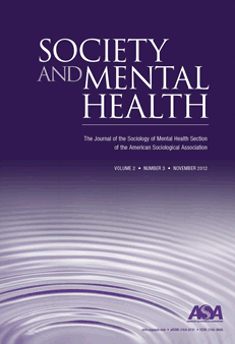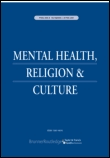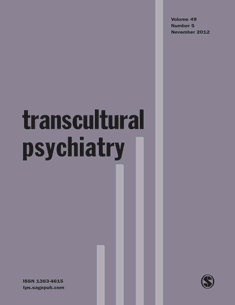
CULTURE MEDICINE AND PSYCHIATRY
Scope & Guideline
Decoding the Cultural Dimensions of Mental Health
Introduction
Aims and Scopes
- Cultural Psychiatry:
The journal focuses on how cultural beliefs and practices influence mental health and psychiatric treatment. It examines the role of cultural narratives in shaping the experience of mental illness and the expectations of care. - Qualitative Research:
Utilizing ethnographic, narrative, and qualitative methodologies, the journal emphasizes in-depth explorations of individual and community experiences with mental health, providing rich, contextual insights into psychiatric practices. - Social Determinants of Mental Health:
Research articles often investigate how socioeconomic factors, migration, and social structures impact mental health outcomes, highlighting the importance of understanding mental health within broader societal contexts. - Interdisciplinary Approaches:
The journal promotes interdisciplinary dialogue, integrating perspectives from medicine, anthropology, sociology, and psychology to address complex mental health issues and to develop culturally sensitive interventions. - Innovative Therapeutic Practices:
There is a focus on exploring alternative and traditional healing practices, including the use of technology and community-based approaches, as well as the integration of these practices into conventional mental health care.
Trending and Emerging
- Impact of COVID-19 on Mental Health:
A significant number of recent articles examine the mental health implications of the COVID-19 pandemic, focusing on how lockdowns, social isolation, and health anxieties affect various populations, highlighting the need for adaptive mental health strategies. - Digital Mental Health Interventions:
There is a growing interest in the use of technology, including mental health apps and teletherapy, as innovative solutions for mental health care, particularly in marginalized communities and during health crises. - Intersectionality in Mental Health:
Emerging themes emphasize the intersection of race, gender, and class in understanding mental health experiences. This focus addresses how overlapping identities influence access to care and experiences of stigma. - Community-Based Mental Health Approaches:
Research highlighting participatory and community-based mental health interventions is on the rise, reflecting a shift towards recognizing the importance of local contexts and collective healing practices. - Exploration of Marginalized Voices:
Recent publications increasingly center the experiences of marginalized populations, including refugees, minorities, and low-income groups, aiming to amplify their voices in discussions about mental health and cultural practices.
Declining or Waning
- Traditional vs. Western Medicine Dichotomy:
There has been a noticeable decline in articles strictly contrasting traditional healing methods with Western psychiatric practices. Recent publications are more inclined to explore integrative approaches rather than presenting them as oppositional. - Historical Perspectives on Psychiatry:
While historical analyses of psychiatry and its evolution were previously common, there seems to be a waning interest in historical narratives. The current focus is more on contemporary issues and practices rather than retrospective critiques. - Pathologization of Culture:
Research framing cultural practices as pathological is becoming less prevalent, as the journal shifts towards a more nuanced understanding of culture and mental health that avoids labeling cultural expressions as disorders. - Focus on Individual Case Studies:
The trend of publishing individual case studies appears to be declining, with a greater emphasis on broader sociocultural dynamics and community-level analyses, indicating a shift towards collective experiences rather than isolated narratives.
Similar Journals

Rivista di Psichiatria
Fostering Collaboration in Psychiatric ScienceRivista di Psichiatria, published by PENSIERO SCIENTIFICO EDITORE, stands as a significant contributor to the field of Psychiatry and Mental Health since its inception in 1975. With an ISSN of 0035-6484 and an E-ISSN of 2038-2502, this esteemed journal offers a platform for rigorous academic discourse and cutting-edge research, helping to shape contemporary psychiatric practices and theories. Currently holding a Q2 designation in Psychiatry and Mental Health based on the 2023 category quartiles, and ranking #197 out of 567 in Scopus, it reflects a commendable 65th percentile among its peers. The journal welcomes contributions that encompass a broad range of topics related to mental health, encouraging contributions from a multidisciplinary approach, which aids in its goal of advancing the understanding and application of psychiatric science. While it is a traditional journal without Open Access options, access to its valuable content can support researchers, clinicians, and students in their pursuit of knowledge and innovation within the field. Situated in Rome, Italy, at VIA SAN GIOVANNI VALDARNO 8, ROME 00138, the journal continues to enhance its rich legacy, promoting the exchange of ideas and fostering collaboration amongst practitioners and scholars alike.

HISTORY OF PSYCHIATRY
Connecting Historical Insights to Modern Mental HealthHISTORY OF PSYCHIATRY is a distinguished scholarly journal published by SAGE PUBLICATIONS LTD, dedicated to advancing the field of psychiatry through the exploration of its historical contexts and developments. Since its inception in 1990, the journal has been a valuable resource for researchers, professionals, and students in psychiatry and mental health, delving into the evolution of therapeutic practices, social perceptions, and scientific advancements that have shaped the discipline. With an ISSN of 0957-154X and an E-ISSN of 1740-2360, it remains a key player in the academic landscape, currently holding a Q4 quartile ranking in Psychiatry and Mental Health as per the 2023 categorization. Although the journal is not Open Access, its curated articles contribute significantly to understanding past and present mental health challenges, ultimately informing future practices. Positioned in the UK, at 1 Olivers Yard, 55 City Road, London, HISTORY OF PSYCHIATRY is poised to inspire critical discourse and foster scholarly insights in a field that continuously evolves.

Society and Mental Health
Advancing Understanding at the Intersection of Society and PsychologySociety and Mental Health, published by SAGE Publications Inc, stands as a leading journal dedicated to the intricate interfaces of society and psychology. With its ISSN 2156-8693 and E-ISSN 2156-8731, the journal has firmly established itself within the realms of Psychiatry and Mental Health as well as Public Health, Environmental and Occupational Health, achieving a remarkable ranking of Q1 in both categories as of 2023. Operating from the United States, this influential journal, in publication since 2011, spans a comprehensive convergence of research and discourse, culminating in significant insights that shape contemporary understandings of mental health's societal determinants. Despite its non-open access nature, Society and Mental Health maintains an impressive impact, bolstered by its Scopus rankings, which place it in the 93rd percentile in Public Health and in the 90th percentile in Psychiatry. By inviting contributions from researchers, professionals, and students alike, the journal aims to illuminate the social contexts of mental health, promoting a dialogue that is essential for the advancement of both theory and practice in this critical field.

ZEITSCHRIFT FUR PSYCHOSOMATISCHE MEDIZIN UND PSYCHOTHERAPIE
Fostering Dialogue Between Science and Clinical PracticeZEITSCHRIFT FUR PSYCHOSOMATISCHE MEDIZIN UND PSYCHOTHERAPIE, published by Vandenhoeck & Ruprecht GmbH & Co KG, is a prominent journal in the fields of psychosomatic medicine and psychotherapy. With a rich history spanning from 1996 to 2024, this journal serves as a vital platform for disseminating research and advancements within applied psychology, clinical psychology, and psychiatry. The journal is categorized in the Q3 quartile for 2023 across various disciplines, reflecting its ongoing relevance and contribution to the scientific community. Despite not currently offering open access, it remains accessible to researchers and professionals through institutional subscriptions and libraries. By bridging the gap between empirical research and clinical practice, ZEITSCHRIFT FUR PSYCHOSOMATISCHE MEDIZIN UND PSYCHOTHERAPIE enhances the understanding of psychological processes and their implications for mental health, making it an indispensable resource for academics, practitioners, and students dedicated to the advancement of psychosomatic health.

Mental Health Review Journal
Empowering voices in the journey of mental wellness.Mental Health Review Journal, published by Emerald Group Publishing Ltd, is an esteemed publication dedicated to advancing the field of mental health and psychiatry. With a distinct focus on disseminating critical research, this journal aims to provide a platform for scholars, practitioners, and students alike to engage in the discourse surrounding mental wellness. Established in 1996, it has evolved through its converged years to foster an inclusive academic community that addresses contemporary challenges in mental health. Recognized for its relevance, the journal currently holds a Q3 ranking in Psychiatry and Mental Health as per 2023 categorizations and occupies the 37th percentile in Scopus rankings. Though not classified as an Open Access journal, it remains a key resource for rigorous research and analysis, making significant impacts in understanding and improving mental health practices. With its headquarters in the United Kingdom, Mental Health Review Journal is primed for contributing pivotal insights and fostering interdisciplinary collaboration, thereby shaping mental health education and practice on a global scale.

BJPsych Open
Transforming mental health practices through open access knowledge.BJPsych Open, published by Cambridge University Press, is a leading open access journal dedicated to the field of psychiatry and mental health. Since its inception in 2015, the journal has provided a platform for disseminating cutting-edge research and evidence-based practices, making significant contributions to the academic community. With an impressive impact factor and currently ranking in the top Q1 quartile of its field, BJPsych Open is recognized for its rigor and relevance, ranking 138 out of 567 journals in psychiatry and mental health according to Scopus, placing it in the 75th percentile. The journal's commitment to open access enhances visibility and accessibility, ensuring that vital research is available to a global audience. Researchers, professionals, and students alike will find valuable insights into contemporary mental health challenges and innovative treatment approaches, making BJPsych Open an essential resource for advancing mental health scholarship.

Mental Health Religion & Culture
Bridging Cultures, Enhancing Mental HealthMental Health Religion & Culture is a leading academic journal published by Routledge Journals, Taylor & Francis Ltd, focusing on the intersection of mental health, religious beliefs, and cultural influences. Established in 2000, this peer-reviewed journal aims to advance the understanding of how religion and culture impact mental health and well-being, making it a crucial resource for researchers, practitioners, and policymakers in the fields of Clinical Psychology and Psychiatry. With a commendable placement in the Q3 category for both Clinical Psychology and Psychiatry and Mental Health in 2023, the journal emphasizes high-quality research and practical applications, contributing significantly to interdisciplinary dialogue. While currently not available as open access, the journal provides extensive insights backed by rigorous research, essential for both emerging scholars and seasoned professionals dedicated to enhancing mental health practices across diverse cultural contexts. The journal is based in the United Kingdom, publishing comprehensive research and discussions that engage with the complexities of mental health interventions related to religious and cultural frameworks, thus fulfilling its objective of bridging gaps and fostering collaboration in mental health research.

Transcultural Psychiatry
Innovating Insights in Transcultural PsychiatryTranscultural Psychiatry is a leading interdisciplinary journal published by SAGE Publications Ltd, dedicated to advancing the understanding of the interplay between culture and mental health. With a storied history dating back to 1964 and converging until 2024, this esteemed journal holds a prominent position in the field, as evidenced by its Q1 ranking in Health (Social Science) and Q2 in Psychiatry and Mental Health. It ranks #71 in Scopus within the social sciences domain, reflecting its vital contribution to academia, with an 80th percentile standing that underscores its impact. Although it is not open access, Transcultural Psychiatry is committed to providing valuable insights and research relevant to scholars, healthcare practitioners, and policymakers engaged in culturally informed mental health practices. Through rigorous scholarly articles, the journal aims to bridge cultural understandings and promote global dialogue on psychiatric practices, making it an essential resource for anyone interested in transcultural dimensions of mental health.

Journal of Psychiatric Practice
Empowering mental health professionals through evidence-based insights.Journal of Psychiatric Practice, published by Lippincott Williams & Wilkins, is a premier journal dedicated to advancing the field of psychiatry and mental health. With a focus on evidence-based clinical practice, the journal has been a respected resource since its inception, providing a platform for a wide range of articles, including original research, reviews, and case reports from 1997 to the present. As of 2023, it holds a Q3 ranking in Psychiatry and Mental Health, reflecting its influential role in the academic community. The Journal is aimed at researchers, mental health professionals, and students, promoting the dissemination of essential knowledge and innovative practices. Subscribers benefit from the latest findings and discussions in the field while contributing to the ongoing advancements in psychiatric care. Although not classified as open access, the journal ensures wide accessibility to its valuable content, further solidifying its commitment to the mental health discipline.

INTERNATIONAL JOURNAL OF LAW AND PSYCHIATRY
Exploring the Nexus of Justice and PsychologyThe INTERNATIONAL JOURNAL OF LAW AND PSYCHIATRY, published by PERGAMON-ELSEVIER SCIENCE LTD, stands as a pivotal resource in the intersection of legal studies and psychological research. With an ISSN of 0160-2527 and E-ISSN 1873-6386, this journal covers a broad spectrum of topics from the complexities of mental health law to the implications of psychiatric assessments in jurisprudence, making it a valuable asset for researchers and practitioners alike. It enjoys impressive rankings, placing in the top quartiles across multiple categories in the 2023 Scopus index: Q1 in Law and Pathology & Forensic Medicine, and Q2 in Psychiatry and Mental Health, highlighting its significance and impact in these fields. This journal, accessible to scholars globally, fosters important discussions and advancements in understanding the interrelation of law and mental health, providing a forum for innovative research and critical reviews. With publication convergence spanning from 1978 to 2024, it continues to shape the discourse in law and psychiatry and remains essential for anyone seeking to stay informed on contemporary issues and research in these dynamic fields.